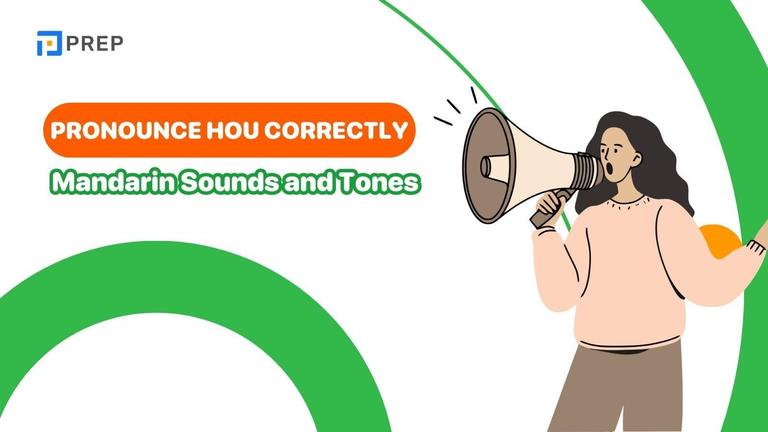Days of the Week in China: Learn Names and Usage
Ever wondered how to say the days of the week in Chinese? In Mandarin, days follow a simple number-based system starting from Monday (星期一) to Sunday (星期日 or 星期天). This guide helps you learn each day with Pinyin, pronunciation tips, and how to use them in real sentences.
I. What Are the Days of the Week in Chinese?
If you’re just starting your Chinese language journey, one of the first and most useful things you’ll want to learn is how to say the days of the week. Whether you're scheduling meetings, planning a class, or simply trying to understand a calendar, mastering this vocabulary is essential.
In Mandarin Chinese, the days of the week follow a simple pattern:
星期 (xīngqī) + number
- “星期” means “week”
- The number tells you the day
- 一 = Monday
- 二 = Tuesday
- 三 = Wednesday
- 四 = Thursday
- 五 = Friday
- 六 = Saturday
- 日 or 天 = Sunday
So, Monday is 星期一 (xīngqī yī), Tuesday is 星期二 (xīngqī èr), and so on.
There’s no need to memorize completely new words for each day—just learn how to count from 1 to 7 in Chinese, and you'll be able to say every day of the week.
1. Full List of Chinese Days of the Week with Pinyin and Meaning
The Chinese days of the week follow a consistent formula: “星期 (xīngqī)” + number, where the number tells you which day it is.
Here is the full list from Monday to Sunday:
|
Day (English) |
Chinese Characters |
Pinyin |
Literal Meaning |
|
Monday |
星期一 |
xīngqī yī |
Week + One |
|
Tuesday |
星期二 |
xīngqī èr |
Week + Two |
|
Wednesday |
星期三 |
xīngqī sān |
Week + Three |
|
Thursday |
星期四 |
xīngqī sì |
Week + Four |
|
Friday |
星期五 |
xīngqī wǔ |
Week + Five |
|
Saturday |
星期六 |
xīngqī liù |
Week + Six |
|
Sunday |
星期天 / 星期日 |
xīngqī tiān / xīngqī rì |
Week + Heaven / Week + Sun |
Note on Sunday:
- 星期天 (xīngqī tiān) is commonly used in spoken Chinese.
- 星期日 (xīngqī rì) is more formal or written.
Tips to Remember:
- Focus on learning numbers 1–7 in Chinese — once you’re confident with those, saying the days becomes intuitive.
- Use real-life associations:
- Workdays: Monday to Friday = 星期一到星期五
- Weekend: Saturday and Sunday = 周末 (zhōumò)
This system makes learning weekday vocabulary in Chinese much simpler than many other languages. Up next, let’s explore two alternative expressions used in different regions and contexts.
2. Alternative Ways to Say the Days
Besides 星期 (xīngqī), which is the most commonly used prefix for naming the days of the week, Mandarin also allows two alternative forms: 周 (zhōu) and 礼拜 (lǐbài). All three follow the same basic pattern: the prefix + number.
Here’s a comparison to help you understand:
|
English |
星期 Form |
周 Form |
礼拜 Form |
|
Monday |
星期一 |
周一 |
礼拜一 |
|
Tuesday |
星期二 |
周二 |
礼拜二 |
|
Wednesday |
星期三 |
周三 |
礼拜三 |
|
... |
... |
... |
... |
|
Sunday |
星期天 / 日 |
周日 |
礼拜天 / 礼拜日 |
When to Use Which Form?
- 星期 (xīngqī)
- Most widely used in spoken Mandarin, textbooks, and standardized exams (like HSK).
- Neutral, appropriate in all contexts.
- 周 (zhōu)
- Appears commonly in written language, schedules, calendars, and in more formal settings.
- Slightly more concise.
- 礼拜 (lǐbài)
- More spoken and informal, often used in Taiwan, Hong Kong, and southern China.
- Historically comes from religious vocabulary ("礼拜" = worship), but now secular.
Tip: Whichever form you use, the structure remains consistent. Once you master one set, the others are easy to switch between. It’s a great way to recognize regional differences and adjust your speech based on where or with whom you’re speaking.
II. How to Use Days of the Week in Chinese Sentences
Once you’ve memorized the days of the week in Chinese, the next step is using them in everyday conversation. Whether you’re talking about plans, past events, or recurring activities, weekday vocabulary can appear in a wide range of sentence structures.
Basic Sentence Patterns
Here are some beginner-friendly examples of how to say what happens on a particular day:
- 我星期一上中文课。
Wǒ xīngqī yī shàng zhōngwén kè.
→ I have Chinese class on Monday. - 星期五我们去吃火锅。
Xīngqī wǔ wǒmen qù chī huǒguō.
→ We’re going to eat hotpot on Friday.
Tip: Time words like “星期一” usually go at the beginning of the sentence or right before the verb.
Talking About This Week, Next Week, Last Week
To make your sentences more specific, add time markers like:
- 这 (zhè) – this
- 上 (shàng) – last
- 下 (xià) – next
Examples:
- 我这星期三有考试。
Wǒ zhè xīngqī sān yǒu kǎoshì.
→ I have an exam this Wednesday. - 她上周五去了北京。
Tā shàng zhōu wǔ qù le Běijīng.
→ She went to Beijing last Friday. - 我们下礼拜二开会。
Wǒmen xià lǐbài èr kāihuì.
→ We have a meeting next Tuesday.
Expressing Frequency with Days of the Week
You can also talk about routines by combining weekdays with frequency words:
- 我每个星期一跑步。
Wǒ měi ge xīngqī yī pǎobù.
→ I jog every Monday. - 他周末常常加班。
Tā zhōumò chángcháng jiābān.
→ He often works overtime on weekends. - 我礼拜天通常在家休息。
Wǒ lǐbài tiān tōngcháng zài jiā xiūxí.
→ I usually relax at home on Sundays.
By practicing these sentence types, you’ll not only build fluency with date-related vocabulary, but also gain confidence in using time phrases—a vital part of communicating clearly in Mandarin.
III. Cultural Notes – How Chinese People View the Week
Understanding how the week is structured in Chinese is only part of the picture. Knowing how people in China relate to the week socially and culturally can give you deeper insight into how the language reflects everyday life.
The Concept of the Week in Modern China
Unlike in ancient times, where the traditional Chinese calendar didn’t originally divide time into seven-day weeks, modern China now follows the international standard: a seven-day week starting on Monday and ending on Sunday.
This system—based on the Western Gregorian calendar—was adopted after calendar reforms in the early 20th century, and it now aligns with how weeks are structured in most of the world.
In daily life, people use the terms 星期, 周, or 礼拜 to refer to weekdays, and this structure appears in:
- Work and school timetables
- Public services and operating hours
- TV programming and transit schedules
Workweek, School Week, and Weekend Culture
Just like in many other countries, the standard workweek in China runs from Monday (星期一) to Friday (星期五). Schools also generally run during the same days, with Saturday and Sunday (周末) as the weekend.
However, several unique cultural factors shape how people experience the week:
- Make-up workdays: In China, when a public holiday creates a long weekend, authorities sometimes shift days around—leading to “working weekends” to make up for days off. For example, you might get Monday to Wednesday off, but have to work on the weekend before or after.
- Busy Mondays (and Fridays): Monday is often associated with high productivity expectations, while Friday afternoons can feel more relaxed—similar to what many international professionals experience.
- Weekend family time: Many people spend Sundays visiting parents or relatives, reflecting deep-rooted family values in Chinese culture. Words like 回家 (huí jiā – to go home) and 聚餐 (jùcān – family meal) are common in weekend conversations.
Understanding these cultural rhythms can help you use weekday words more authentically and even anticipate local habits or schedules when living, studying, or traveling in China.
Chinese weekdays aren’t just vocabulary to memorize—they reflect a way of structuring time, thinking, and daily life. So start with Monday, connect it with your plans, say it out loud, and watch your confidence grow one word at a time. Follow PREP for resources that help you turn weekly routines into real-world Chinese fluency.

Hi I'm Chloe, and I am currently serving as an Product Content Administrator at Prep Education. With over five years of experience in independent online IELTS study and exam preparation, I am confident in my ability to support learners in achieving their highest possible scores.
Comment
Premium content
View allPersonalized roadmap
Most read












